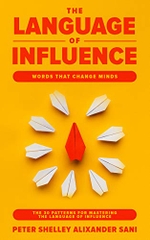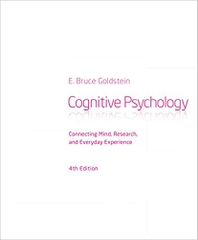-
-
-
Tổng tiền thanh toán:
-
-
Thông tin
-
Tìm sách theo yêu cầu
Book Description
Publication Date: March 1, 2013 | ISBN-10: 0199948089 | ISBN-13: 978-0199948086 | Edition: 1
About one American in five receives a diagnosis of major depression over the course of a lifetime. That's despite the fact that many such patients have no mood disorder; they're not sad, but suffer from anxiety, fatigue, insomnia, or a tendency to obsess about the whole business. "There is a term for what they have," writes Edward Shorter, "and it's a good old-fashioned term that has gone out of use. They have nerves."
In How Everyone Became Depressed, Edward Shorter, a distinguished professor of psychiatry and the history of medicine argues for a return to the old fashioned concept of nervous illness. These are, he writes, diseases of the entire body, not the mind, and as was recognized as early as the 1600s. Shorter traces the evolution of the concept of "nerves" and the "nervous breakdown" in western medical thought. He points to a great paradigm shift in the first third of the twentieth century, driven especially by Freud, that transferred behavioral disorders from neurology to psychiatry, spotlighting the mind, not the body. The catch-all term "depression" now applies to virtually everything, "a jumble of non-disease entities, created by political infighting within psychiatry, by competitive struggles in the pharmaceutical industry, and by the whimsy of the regulators." Depression is a real and very serious illness, he argues; it should not be diagnosed so promiscuously, and certainly not without regard to the rest of the body. Meloncholia, he writes, "the quintessence of the nervous breakdown, reaches deep into the endocrine system, which governs the thyroid and adrenal glands among other organs."
In a learned yet provocative challenge to psychiatry, Shorter argues that the continuing misuse of "depression" represents nothing less than "the failure of the scientific imagination."
"Why are you being told you have depression or anxiety and why are you being given antidepressants or anxiolytics, when in fact you've had a nervous breakdown? The answer lies in the fact that managing nervous breakdowns is a more complex clinical task than just simply giving a pill. There is more than just a simple change of words here, these are words that matter. In eliminating the nervous breakdown, psychiatry has come close to having its own nervous breakdown." -- David Healy, MD, FRCPsych, Author of Pharmageddon, Professor of Psychiatry, University of Cardiff, Wales
"Nerves stand at the core of common mental illness, no matter how much we try to forget them. As 'nerves' have jumped from one organ to another, from the hyopochondrium to the stomach, from the heart to the chest, and from the chest to the spleen before finally finishing up in neurowhimsical tangles in the brain, every performance has been applauded and enthused by physicians of all kinds in wild abandon. Science has taken a back seat. It can't be as bad as all that, you may argue, we have made real advances in the last few years. Sorry folks, we ain't, and if you want to see what little distance we have travelled read this book at the same time you read the glossy new DSM-5 Manual when it comes out in May 2013, and decide which is closer to the truth. Shorter exposes and discloses all in this witty and perceptive account of our foibles." -- Peter J. Tyrer, FMedSci, Professor of Community Psychiatry, Imperial College, London
"Professor Shorter has written a fascinating, scholarly and helpfully provocative book on 'nerves,' nervous breakdown, anxiety and 'depression.' Shorter strongly emphasizes the role of bodily malfunction in the melancholic vs. the non-melancholic depression debate. Thoroughly and elegantly the reader is guided through centuries of ideas and concepts [and] Shorter's criticism of contemporary views on 'nerves' and 'depression' are sharp, but well-founded. This fine book deserves a wide readership - it should be mandatory reading for all professions working in mental health care." -- Tom G. Bolwig MD, DMSc, Emeritus Professor of Psychiatry, University of Copenhagen, Denmark
"Enlivened by literary anecdotes." KIRKUS REVIEWS
As featured in the London Times, April 16, 2013
"Edward Shorter has become the historian of record for psychiatry. This is a fascinating and authoritative look at much recent history, cultural as well as medical. It should be added to every practitioner's library to foster historical perspective and suitable humility." -- Jennifer Radden, Metapsychology Online Reviews
- Link: http://www.amazon.com/How-Everyone-Became-Depressed-Breakdown/dp/0199948089
In How Everyone Became Depressed, Edward Shorter, a distinguished professor of psychiatry and the history of medicine argues for a return to the old fashioned concept of nervous illness. These are, he writes, diseases of the entire body, not the mind, and as was recognized as early as the 1600s. Shorter traces the evolution of the concept of "nerves" and the "nervous breakdown" in western medical thought. He points to a great paradigm shift in the first third of the twentieth century, driven especially by Freud, that transferred behavioral disorders from neurology to psychiatry, spotlighting the mind, not the body. The catch-all term "depression" now applies to virtually everything, "a jumble of non-disease entities, created by political infighting within psychiatry, by competitive struggles in the pharmaceutical industry, and by the whimsy of the regulators." Depression is a real and very serious illness, he argues; it should not be diagnosed so promiscuously, and certainly not without regard to the rest of the body. Meloncholia, he writes, "the quintessence of the nervous breakdown, reaches deep into the endocrine system, which governs the thyroid and adrenal glands among other organs."
In a learned yet provocative challenge to psychiatry, Shorter argues that the continuing misuse of "depression" represents nothing less than "the failure of the scientific imagination."
Editorial Reviews
Review
"Why are you being told you have depression or anxiety and why are you being given antidepressants or anxiolytics, when in fact you've had a nervous breakdown? The answer lies in the fact that managing nervous breakdowns is a more complex clinical task than just simply giving a pill. There is more than just a simple change of words here, these are words that matter. In eliminating the nervous breakdown, psychiatry has come close to having its own nervous breakdown." -- David Healy, MD, FRCPsych, Author of Pharmageddon, Professor of Psychiatry, University of Cardiff, Wales
"In this new survey of "nerves" Shorter recounts the shifting meanings and fashions over the ages concerning breakdowns, crackups, depression, anxiety, stress - what average person's thought ailed them and what the professionals thought. Labels come and go. Classifications come and go. Clear understanding waxes and wanes. Diagnostic boundaries come and go. Treatments come and go. Hard won insights are lost and rediscovered. Shorter brings it all alive with graphic historical and contemporary material. With his polyglot command of the European literature, there is no one better for the task. Through it all, Shorter keeps his focus firmly on the issues that matter to patients. This is a tale for everyone, not just the academics." -- Bernard Carroll, MBBS, PhD, FRCPsych, Pacific Behavioral Research Foundation
"Nerves stand at the core of common mental illness, no matter how much we try to forget them. As 'nerves' have jumped from one organ to another, from the hyopochondrium to the stomach, from the heart to the chest, and from the chest to the spleen before finally finishing up in neurowhimsical tangles in the brain, every performance has been applauded and enthused by physicians of all kinds in wild abandon. Science has taken a back seat. It can't be as bad as all that, you may argue, we have made real advances in the last few years. Sorry folks, we ain't, and if you want to see what little distance we have travelled read this book at the same time you read the glossy new DSM-5 Manual when it comes out in May 2013, and decide which is closer to the truth. Shorter exposes and discloses all in this witty and perceptive account of our foibles." -- Peter J. Tyrer, FMedSci, Professor of Community Psychiatry, Imperial College, London
"Professor Shorter has written a fascinating, scholarly and helpfully provocative book on 'nerves,' nervous breakdown, anxiety and 'depression.' Shorter strongly emphasizes the role of bodily malfunction in the melancholic vs. the non-melancholic depression debate. Thoroughly and elegantly the reader is guided through centuries of ideas and concepts [and] Shorter's criticism of contemporary views on 'nerves' and 'depression' are sharp, but well-founded. This fine book deserves a wide readership - it should be mandatory reading for all professions working in mental health care." -- Tom G. Bolwig MD, DMSc, Emeritus Professor of Psychiatry, University of Copenhagen, Denmark
"Enlivened by literary anecdotes." KIRKUS REVIEWS
As featured in the London Times, April 16, 2013
"[Shorter's] point is not to mitigate anyone's experience of depression, no matter how minor. Rather, he aims to underscore psychiatry's shortcomings, to shift the vantage from a narrow view of depression to a wide view of nervous illness and its causes. Shorter's polemical spirit is difficult not to admire." -- Luke Hallum, The Australian
"Historians and practitioners of psychiatry, psychology, neuroscience, and many other mental health professions will find this book illuminating, interesting, and challenging at the same time. Despite looming cuts in library and personal budgets, it would be a valuable addition in any departmental or personal library." -- PsycCRITIQUES
"Edward Shorter has become the historian of record for psychiatry. This is a fascinating and authoritative look at much recent history, cultural as well as medical. It should be added to every practitioner's library to foster historical perspective and suitable humility." -- Jennifer Radden, Metapsychology Online Reviews
About the Author
Edward Shorter is an internationally-recognized historian of psychiatry and the author of numerous books, including A History of Psychiatry from the Era of the Asylum to the Age of Prozac (1997) and Before Prozac (2009). Shorter is the Jason A. Hannah Professor in the History of Medicine and a Professor of Psychiatry in the Faculty of Medicine, University of Toronto.
Product Details
- Hardcover: 272 pages
- Publisher: Oxford University Press; 1 edition (March 1, 2013)
- Language: English
- ISBN-10: 0199948089
- ISBN-13: 978-0199948086
- Product Dimensions: 9.3 x 6.1 x 1.1 inches
- Shipping Weight: 1.2 pounds (View shipping rates and policies)
- Average Customer Review: 1.0 out of 5 stars See all reviews (2 customer reviews)
- Amazon Best Sellers Rank: #914,288 in Books (See Top 100 in Books)
XEM CHI TIẾT TẠI AMAZON.COM
- Thông tin chi tiết
- Mục lục
- Đánh giá & bình luận của người mua
- Những cuốn sách cùng chủ đề hoặc có liên quan
Tại web chỉ có một phần nhỏ các đầu sách đang có nên nếu cần tìm sách gì các bạn có thể liên hệ trực tiếp với Thư viện qua Mail, Zalo, Fanpage nhé
Đăng ký nhận tin qua email
Hãy đăng ký ngay hôm nay để nhận được những tin tức cập nhật mới nhất về sản phẩm và các chương trình giảm giá, khuyến mại của chúng tôi.












